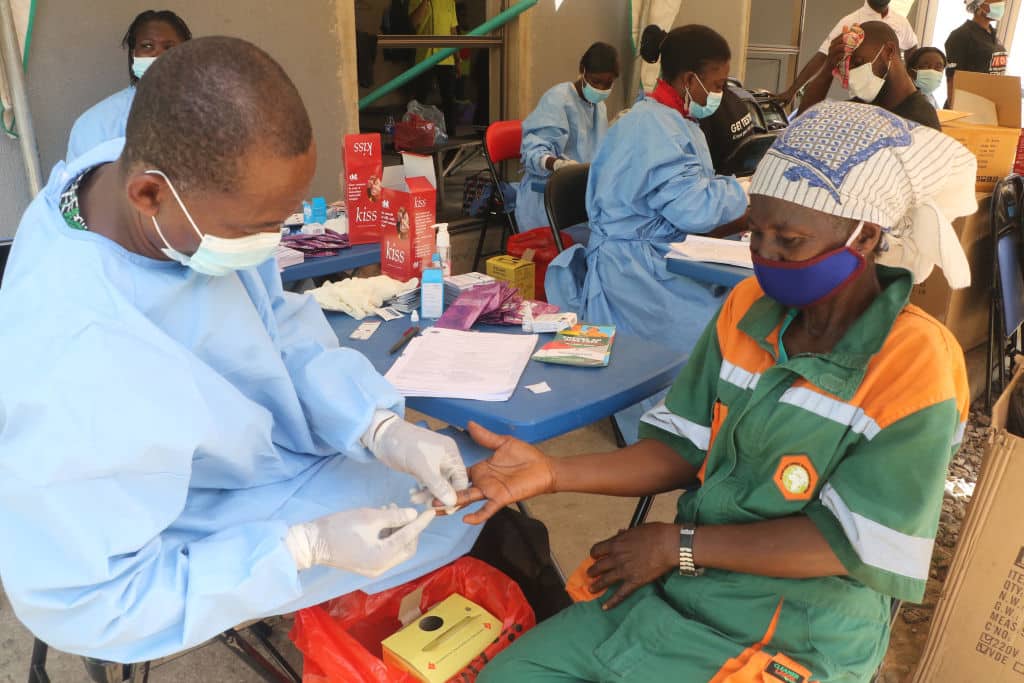In a recent joint press briefing with Nigerian Foreign Minister Yusuf Maitama Tuggar, United States (US) Secretary of State Antony J. Blinken hailed the longstanding partnership between the countries in the fight against HIV/AIDS.
Reflecting on the success of the US President’s Emergency Plan for AIDS Relief (PEPFAR) at Nigeria’s Federal Capital Territory in Abuja after meeting President Bola Tinubu, Blinken stated, “One of the things I must say as an American I’m proudest of is PEPFAR, initiated by President [George W.] Bush, carried on by successive presidents of both parties. Over the last 20 years, PEPFAR has saved well over 20 million lives and changed for the better many more.”
Summarizing PEPFAR’s investments in Nigeria so far, he continued, “Over the last 20 years, we’ve invested $8.3 billion in HIV and tuberculosis prevention, care, and treatment, and in strengthening the public health system, reaching millions of Nigerians. And that effort will continue.”
A month prior, Nigerian Minister of State for Health, Dr Tunji Alausa, reportedly expressed optimism about Nigeria’s progress in ending the HIV epidemic by 2030. Alausa revealed that Nigeria’s current HIV treatment coverage stands above 90%, with 1.6 million out of out of 1.9 million People Living with HIV/AIDS receiving treatment.
However, challenges persist, particularly in addressing the pediatric HIV burden. Dr Adebobola Bashorun, National Coordinator of the National AIDS, Viral Hepatitis, and STIs Control Programme (NASCP), reportedly disclosed that as of 2022, it was estimated that 159,923 children aged zero to 14 years were living with HIV; making it one of the countries with the highest paediatric HIV burden globally. 50,676 of the children were on treatment same year representing 32%.
Loading...
In April 2019, the U.S. Centers for Disease Control and Prevention (CDC) and its partners launched an HIV Anti-Retroviral Therapy (ART) Surge in nine Nigerian states with the highest numbers of individuals with HIV not on treatment. The Delivering Technical Assistance Project (DELTA2), funded by CDC, and implemented by The Elizabeth Glaser Pediatric AIDS Foundation (EGPAF), commenced in the same year. Building upon the success of Project DELTA, DELTA2 focuses on providing technical assistance, capacity building, and program implementation services to advance the goals of PEPFAR and the Global Fund to Fight AIDS, Tuberculosis, and Malaria.
Speaking on the project in Nigeria, EGPAF Country Manager Dr Nguavese Torbunde tells FORBES AFRICA: “We have established Incident Command Centers at the five supported states and at the National level. Through the Social Network Testing (SNT) approach, 8,582 adolescents and young persons were tested for HIV, and 27 were identified living with HIV and linked to ART; 95 healthcare workers were trained from three states on Age-appropriate Disclosure for children and adolescents.”
DELTA2 is just one facet of EGPAF’s comprehensive efforts as Torbunde delves into four other projects, each targeting specific aspects of pediatric HIV care.
Through the Pediatric Breakthrough Partnership Project Phase I, she shares that “30,674 children and adolescents aged 0-19 years were linked and provided HIV testing services, and 617 were identified living with HIV and linked to ART.” The project also provided crucial treatment adherence guidance and support to 2,742 children and adolescents living with HIV, while training over 500 healthcare service providers in essential areas of pediatric and adolescent HIV care.
Loading...
